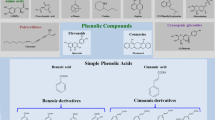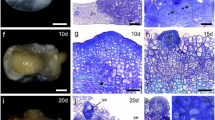Abstract.
Neutral xyloglucan was purified from the cell walls of suspension-cultured rose (Rosa sp. `Paul's Scarlet') cells by alkali extraction, ethanol precipitation and anion-exchange chromatography on `Q-Sepharose FastFlow'. The procedure recovered 70% of the total xyloglucan at about 95% purity in the neutral fraction. The remaining 30% of the xyloglucan was anionic, as demonstrated both by anion-exchange chromatography at pH 4.7 and by high-voltage electrophoresis at pH 6.5. Alkali did not cause neutral xyloglucan to become anionic, indicating that the anionic nature of the rose xyloglucan was not an artefact of the extraction procedure. Pre-incubation of neutral [3H]xyloglucan with any of ten non-radioactive acidic polysaccharides did not cause the radioactive material to become anionic as judged by electrophoresis, indicating that stable complexes between neutral xyloglucan and acidic polysaccharides were not readily formed in vitro. The anionic xyloglucan did not lose its charge in the presence of 8 M urea or after a second treatment with NaOH, indicating that its anionic nature was not due to hydrogen-bonding of xyloglucan to an acidic polymer. Proteinase did not affect the anionic xyloglucan, indicating that it was not associated with an acidic protein. Cellulase converted the anionic xyloglucan to the expected neutral nonasaccharide and heptasaccharide, indicating that the repeat-units of the xyloglucan did not contain acidic residues. Endo-polygalacturonase converted about 40% of the anionic xyloglucan to neutral material. Arabinanase and galactanase also converted appreciable proportions of the anionic xyloglucan to neutral material. These results show that about 30% of the xyloglucan in the cell walls of suspension-cultured rose cells exists in covalently-linked complexes with acidic pectins.
Similar content being viewed by others
Author information
Authors and Affiliations
Additional information
Received: 5 November 1999 / Accepted: 18 January 2000
Rights and permissions
About this article
Cite this article
Thompson, J., Fry, S. Evidence for covalent linkage between xyloglucan and acidic pectins in suspension-cultured rose cells. Planta 211, 275–286 (2000). https://doi.org/10.1007/s004250000287
Issue Date:
DOI: https://doi.org/10.1007/s004250000287




